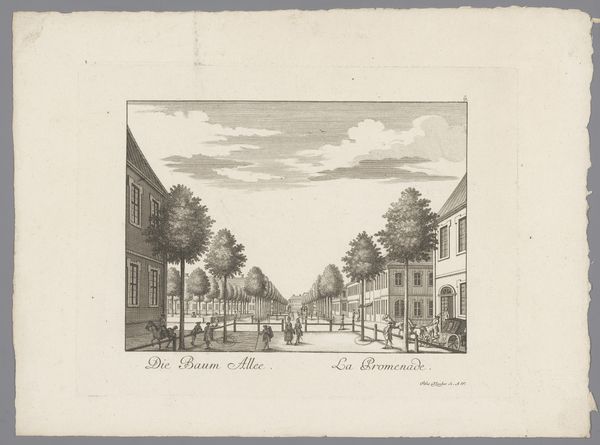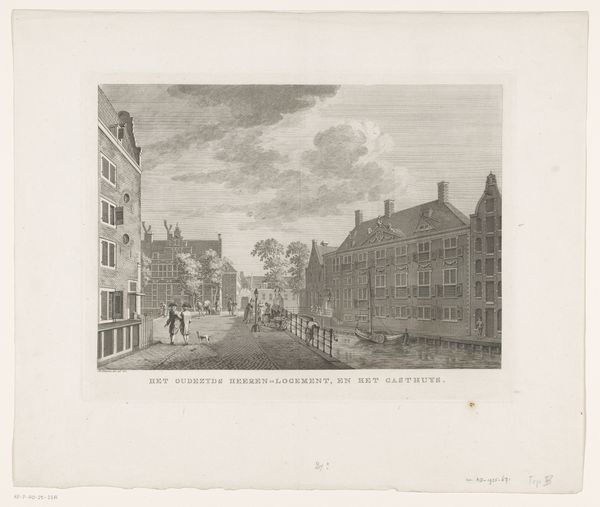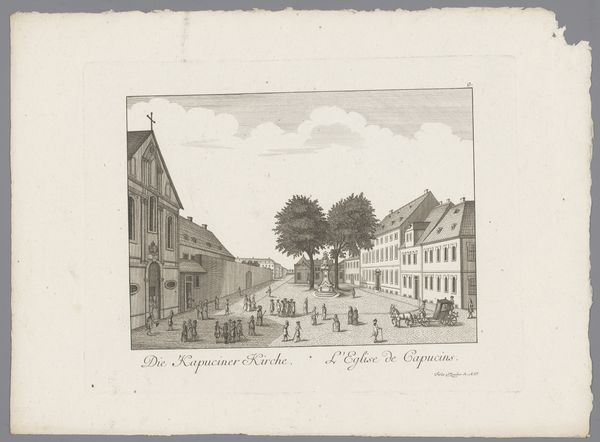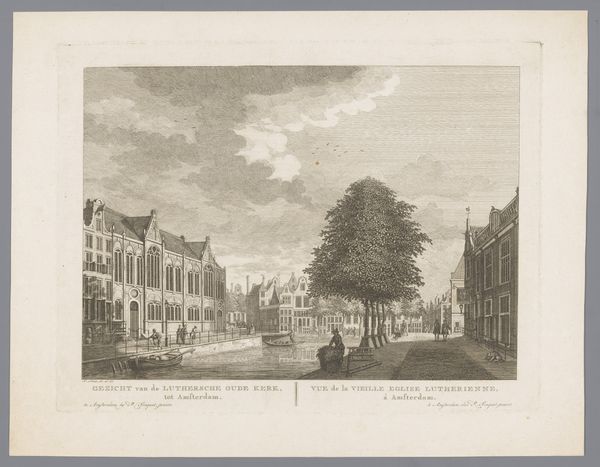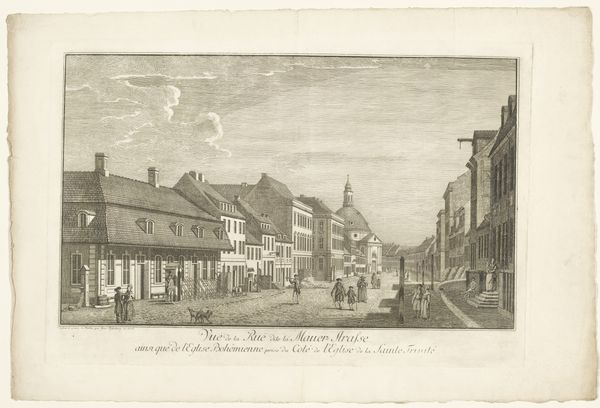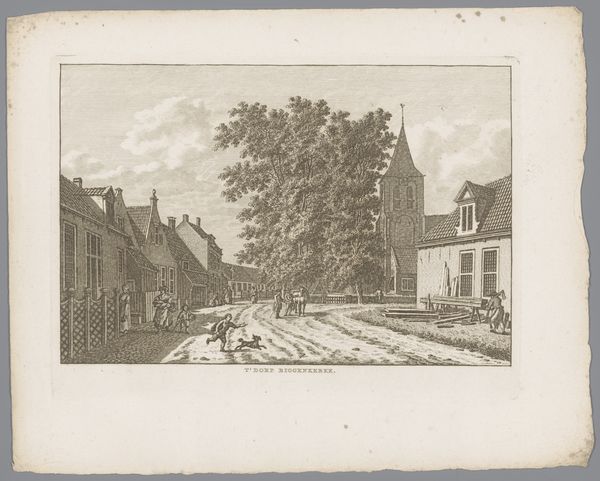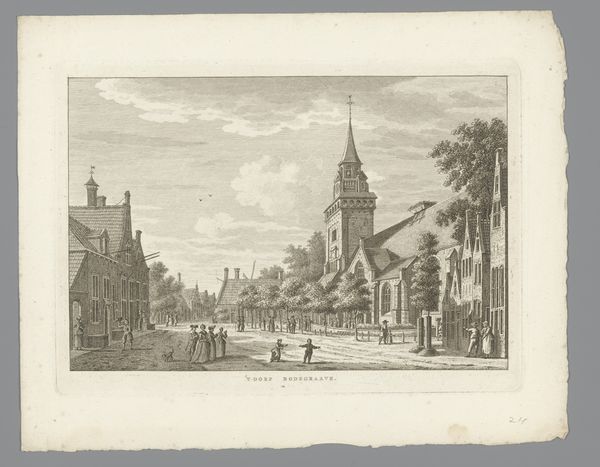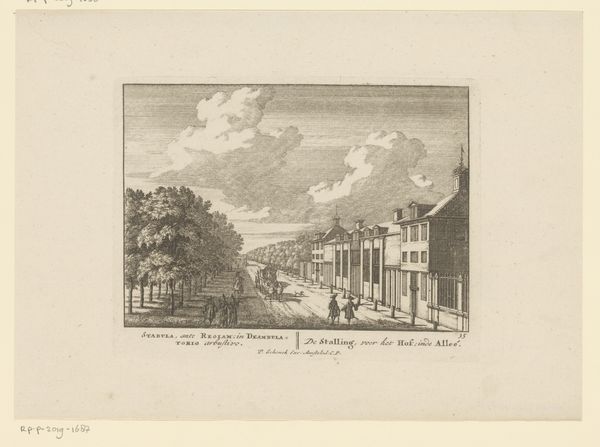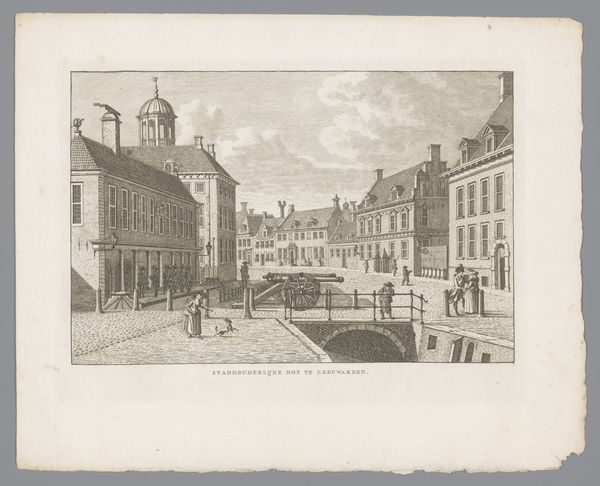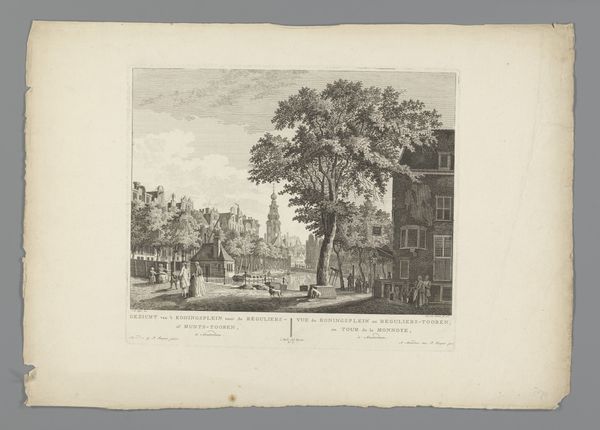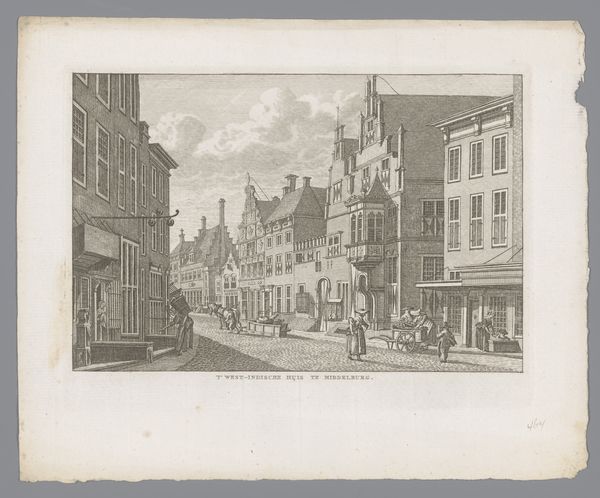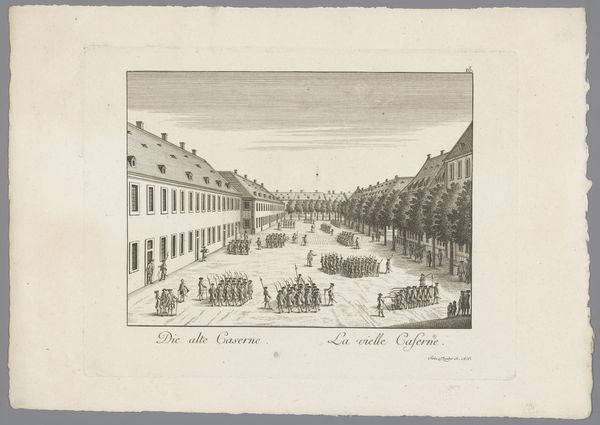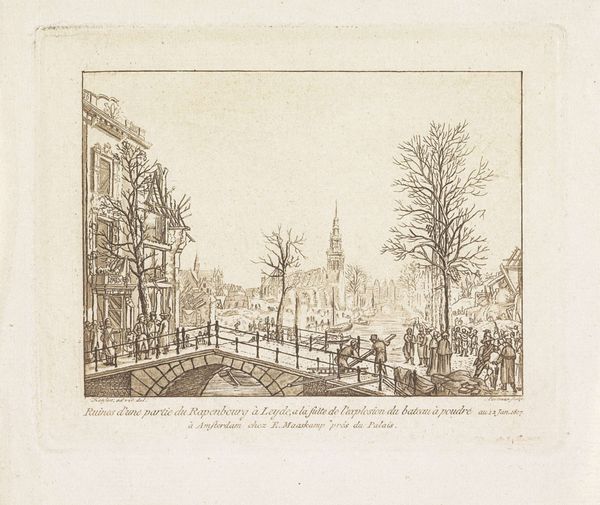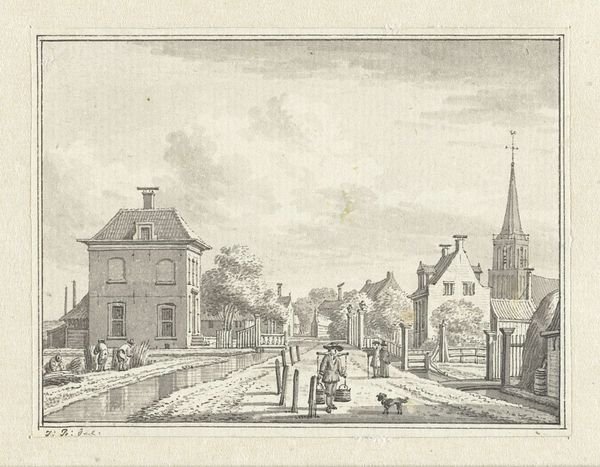
print, etching, engraving
#
neoclacissism
# print
#
etching
#
landscape
#
cityscape
#
engraving
Dimensions: height 219 mm, width 288 mm
Copyright: Rijks Museum: Open Domain
Curator: What a strangely calming perspective, looking down this perfectly ordered street. Almost clinical, in its precision. Editor: It’s a print dating back to 1782, entitled *Gezicht op de Breite Strasse, te Mannheim*, or *View of the Breite Strasse in Mannheim*, created by the Klauber brothers. They were engravers, so this meticulous rendering is very much their specialty. Curator: You can really see it—the careful linework. There's a wonderful quality to the light, too, even without color. It feels airy. Was Mannheim known for this particular... urban planning vibe? Editor: Absolutely. Mannheim was essentially rebuilt in the 18th century with a grid system. Think of it as an attempt to impose rationality and control onto the urban landscape, reflecting the Enlightenment ideals. The "broad street" was, therefore, both a literal and symbolic representation of progress and order. Curator: Order... right. It almost feels a bit *too* ordered, doesn't it? Like something’s missing, like...rebellion, perhaps? I’m itching to throw a splash of bright colors into the scene, just to wake it up. A protest march would fit nicely, a lovely contradiction in terms. Editor: Precisely. That tension is palpable. The print highlights a very specific ideal of civic life—organized, predictable, easily governed. But of course, that ideal often comes at the expense of individual expression, of spontaneous happenings, of the messiness of real life. Curator: Which artists have tried to portray. I guess that’s why a print like this, which so cleanly lays everything out, becomes oddly fascinating. Editor: Right, there’s the illusion of perfection presented within an imperfect reality. These streets aren't just thoroughfares; they represent power dynamics etched in stone. Curator: Leaving us with this quite exquisite etching—both lovely and subtly unsettling. Editor: A great reflection of a moment where urban planning aspired to perfect order, captured forever in ink.
Comments
No comments
Be the first to comment and join the conversation on the ultimate creative platform.
